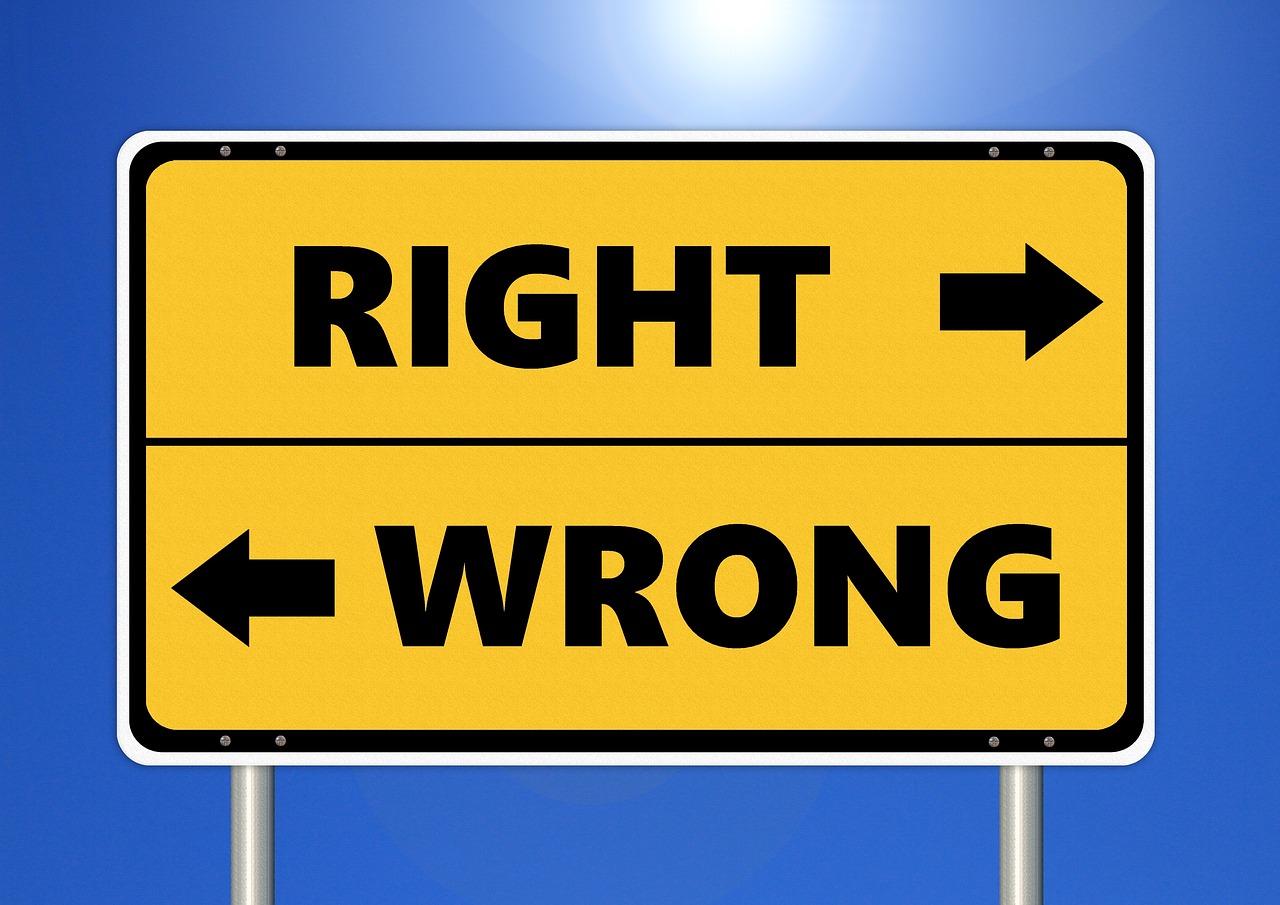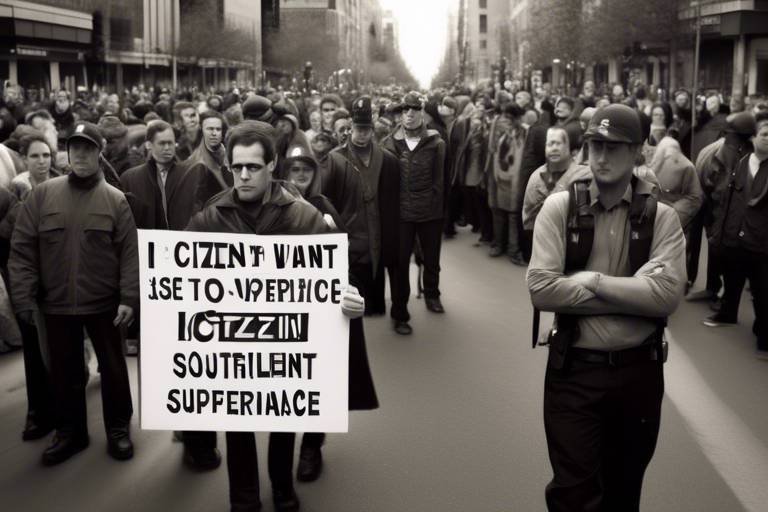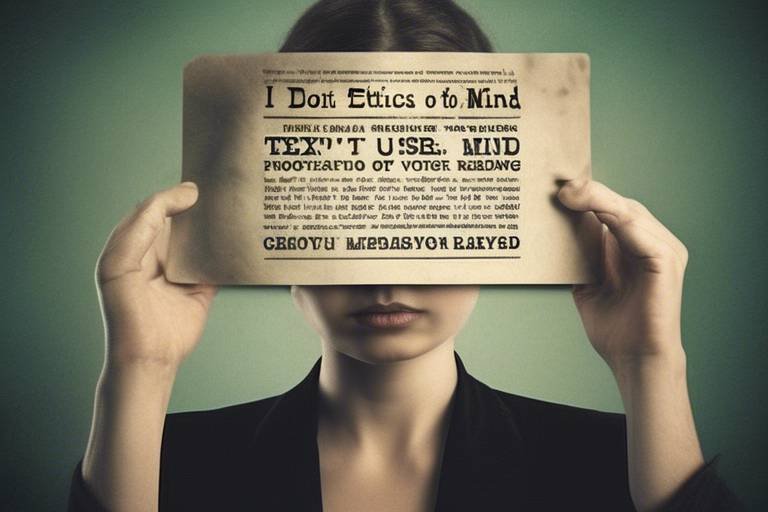Why We Need Ethics in Politics
In the ever-evolving landscape of governance, the significance of ethics in politics cannot be overstated. It serves as the backbone of a healthy democracy, ensuring that leaders act not only in their own interests but also in the best interests of the people they serve. Imagine a world where politicians operate with integrity, where decisions are made transparently, and where the public can trust that their leaders are working for the common good. Sounds ideal, right? But without a solid ethical framework, this vision remains just that—a dream.
Ethics in politics is crucial for several reasons. First and foremost, it fosters public trust. When citizens believe their leaders are ethical, they’re more likely to engage in the political process, vote, and advocate for their rights. This engagement is vital for a vibrant democracy, as it encourages diverse voices to be heard and considered in decision-making processes. Conversely, when ethical breaches occur, they can lead to a significant decline in public trust, resulting in apathy and disengagement from the political system.
Moreover, ethical governance promotes accountability. Politicians who adhere to ethical standards are more likely to be held accountable for their actions, leading to a culture where integrity is valued and rewarded. This accountability not only enhances the effectiveness of governance but also inspires citizens to hold their leaders to high standards. Think of it as a moral compass guiding politicians through the complex terrain of governance. Without it, they may stray off course, prioritizing personal gain over public service.
In addition, a strong ethical foundation helps to prevent corruption. When ethics are prioritized, there are fewer opportunities for unethical behavior to take root, leading to a healthier political environment. Corruption can have devastating effects on a society, eroding trust, stifling economic growth, and perpetuating inequality. By emphasizing ethics in politics, we can work towards a system that not only discourages corruption but actively promotes fairness and justice.
In summary, the need for ethics in politics is paramount. It builds public trust, fosters accountability, and prevents corruption. As we navigate the complexities of modern governance, let us strive to create a political culture that prioritizes ethical behavior. After all, a society that values ethics is one that thrives, ensuring that the voices of its citizens are heard and respected.
- Why is ethics important in politics? Ethics are crucial in politics as they foster trust, accountability, and prevent corruption, ensuring that leaders act in the best interests of their constituents.
- How can we promote ethical behavior in politics? Promoting ethical behavior can be achieved through education, transparency, and establishing robust accountability mechanisms for politicians.
- What are the consequences of unethical behavior in politics? Unethical behavior can lead to public disillusionment, loss of trust in government, and systemic corruption, which undermines democratic institutions.

The Importance of Ethical Leadership
Ethical leadership is not just a buzzword; it's a cornerstone of effective governance and a vital ingredient for a thriving democracy. When leaders act ethically, they lay the groundwork for a political environment that fosters trust and accountability among constituents. Imagine a community where politicians are seen as role models, embodying the values they preach. This kind of leadership inspires citizens to engage positively in the political process, creating a dynamic where everyone feels empowered to contribute.
One of the most significant benefits of ethical leadership is its ability to promote a culture of integrity. When leaders prioritize ethical behavior, they send a powerful message that integrity matters. This culture not only enhances the effectiveness of governance but also encourages citizens to demand higher ethical standards from their representatives. When people see their leaders acting with honesty and transparency, they are more likely to participate in civic activities, such as voting, attending town hall meetings, and advocating for community issues.
Moreover, ethical leadership can significantly reduce the likelihood of corruption. When leaders are committed to ethical principles, they create an environment where unethical behavior is less tolerated. This can lead to a decrease in corrupt practices, which often plague political systems worldwide. A transparent political system is less susceptible to manipulation, ensuring that public resources are used effectively for the benefit of the community rather than for personal gain.
However, the path to ethical leadership is not without challenges. Leaders often face pressures that can tempt them to compromise their values. This is where the importance of a strong ethical framework becomes evident. By establishing clear ethical guidelines and holding themselves accountable, leaders can navigate these pressures more effectively. It’s like having a moral compass that guides them through the fog of political maneuvering.
In summary, the importance of ethical leadership cannot be overstated. It builds trust, promotes citizen engagement, reduces corruption, and creates a culture of integrity. As we navigate the complexities of modern governance, we must remind ourselves that ethical leadership is not just beneficial; it is essential for the health of our democratic society.
- What is ethical leadership? Ethical leadership involves guiding others with a strong sense of ethics, integrity, and accountability.
- Why is ethical leadership important in politics? It fosters trust, encourages citizen engagement, and reduces corruption, ultimately strengthening democracy.
- How can leaders maintain ethical standards? By establishing clear guidelines, holding themselves accountable, and prioritizing transparency in their actions.

Consequences of Ethical Breaches
When politicians engage in unethical behavior, the repercussions can be severe and far-reaching. The immediate fallout often manifests in public disillusionment, as citizens lose faith in their leaders and the political system itself. This erosion of trust can create a ripple effect, leading to widespread skepticism about the motives of all politicians, regardless of their integrity. It's like a chain reaction; one unethical act can tarnish the reputation of an entire political party or even the government as a whole.
Moreover, ethical breaches can lead to systemic corruption, where the line between right and wrong becomes blurred. This not only undermines democratic institutions but also jeopardizes the fundamental principles that uphold our society. For instance, when leaders prioritize personal gain over public service, it sets a dangerous precedent that can encourage others to follow suit. Consequently, the public may begin to perceive politics as a game rigged in favor of the few rather than a platform for the many.
The consequences of ethical lapses extend beyond mere public sentiment; they can also result in significant legislative and policy failures. When trust is eroded, it becomes increasingly difficult for governments to implement policies effectively. Citizens may resist cooperation, fearing that their leaders are acting in bad faith. This creates a toxic environment where crucial decisions are delayed or sabotaged, ultimately harming the very people politicians are supposed to serve.
To illustrate the gravity of these consequences, consider the following:
- Public Disillusionment: When ethical breaches come to light, the public often feels betrayed, leading to lower voter turnout and disengagement from the political process.
- Loss of Trust: Trust, once lost, is incredibly hard to regain. This can result in a cycle of cynicism where citizens believe that all politicians are corrupt.
- Systemic Corruption: As ethical standards decline, corruption can become normalized, making it increasingly difficult to rectify the situation.
In the long run, the consequences of ethical breaches can threaten the very fabric of democracy. A disenchanted electorate may turn to extremist ideologies or alternative political movements that promise change but often lack the ethical framework necessary for sustainable governance. This shift can lead to instability and social unrest, as citizens feel their voices are not being heard in a system they no longer trust.
Ultimately, the stakes are high. The integrity of our political systems hinges on the ethical behavior of those in power. As citizens, we must remain vigilant, holding our leaders accountable and demanding transparency and integrity in governance. Only then can we hope to foster a political culture that prioritizes the common good over personal ambition.
- What are the most common ethical breaches in politics? Common breaches include corruption, bribery, conflicts of interest, and misuse of power.
- How can citizens hold politicians accountable for ethical breaches? Citizens can hold politicians accountable through voting, advocacy, and demanding transparency in government actions.
- What role does the media play in exposing ethical breaches? The media serves as a watchdog, investigating and reporting unethical behavior, thereby informing the public and prompting necessary action.

Case Studies in Political Scandals
When we delve into the annals of political history, it's almost like peeling back the layers of an onion—each layer revealing a new scandal that has shaped public perception and trust in governance. One of the most notorious examples is the Watergate scandal, which not only rocked the United States but also served as a wake-up call for the necessity of ethics in politics. The scandal began with a break-in at the Democratic National Committee headquarters in 1972 and spiraled into a series of cover-ups that ultimately led to the resignation of President Richard Nixon. This incident was a stark reminder of how ethical breaches can lead to a crisis of confidence in government. It wasn't just about the break-in; it was about the lengths to which those in power would go to protect their interests, undermining the very fabric of democracy.
Fast forward to more recent times, and we see that the need for ethical behavior remains pressing. The Bridgegate scandal in New Jersey is a prime example. In 2013, it was revealed that members of Governor Chris Christie's administration had orchestrated traffic jams on the George Washington Bridge as political retribution against a mayor who did not endorse Christie. This scandal not only damaged Christie’s reputation but also raised serious questions about the ethics of using public resources for personal vendettas. The fallout from such incidents often extends beyond the individuals involved, affecting public trust in entire political systems.
Another significant case is the Enron scandal, which, while primarily a corporate scandal, had profound implications for political ethics. As Enron executives engaged in accounting fraud to hide their financial losses, they also leveraged political connections to influence regulations. This scandal highlighted the intertwining of corporate interests and political power, leading to calls for stricter regulations and greater transparency in both business and politics. It serves as a critical reminder that ethical lapses can have widespread consequences, affecting not just those directly involved but also the general public.
To summarize, analyzing these political scandals reveals a common thread: ethical breaches can disrupt governance and erode public confidence. The repercussions can be severe, leading to systemic corruption that undermines democratic institutions. As we continue to witness new scandals, it's clear that the need for ethical standards in politics is more critical than ever. As citizens, we must remain vigilant and demand accountability from our leaders, ensuring that the lessons learned from past scandals are not forgotten.
- What is the Watergate scandal? - The Watergate scandal was a major political scandal in the 1970s involving a break-in at the Democratic National Committee headquarters and subsequent cover-ups, leading to President Nixon's resignation.
- How do political scandals affect public trust? - Political scandals can severely damage public trust in government, leading to disillusionment and skepticism about political integrity.
- What can be done to promote ethics in politics? - Promoting ethics in politics requires education, accountability mechanisms, and a cultural shift that prioritizes integrity among political leaders.

Watergate: A Turning Point
The Watergate scandal stands as a monumental event in American political history, acting as a stark reminder of the necessity for ethical conduct in governance. It all began with a seemingly minor break-in at the Democratic National Committee headquarters in 1972, but what unfolded was a complex web of deceit, cover-ups, and abuses of power that would ultimately lead to the resignation of President Richard Nixon in 1974. This incident didn't just tarnish the reputation of a sitting president; it fundamentally altered the relationship between the American public and their government.
At its core, Watergate highlighted the dangers of unchecked power and the consequences of ethical lapses within the highest levels of political office. The scandal exposed a culture where lying, manipulation, and corruption were not only tolerated but, at times, encouraged. As more details emerged, it became clear that the actions of those in power could undermine the very foundations of democracy. The fallout was devastating, leading to a significant erosion of public trust in political institutions. Citizens began to question not just the integrity of their leaders, but the integrity of the system itself.
As we reflect on Watergate, it’s crucial to recognize its lasting impact on American political culture. The scandal prompted a wave of reforms aimed at increasing transparency and accountability in government. Laws were enacted to limit campaign financing, enhance whistleblower protections, and establish stricter rules regarding lobbying. These changes were essential in restoring some degree of faith in the political process, yet the shadow of Watergate continues to loom large over contemporary politics.
Moreover, Watergate serves as a case study in the importance of ethical leadership. It underscores the idea that politicians must not only be held accountable for their actions but also embody the values of honesty and integrity. When leaders prioritize ethics, they foster a political environment conducive to trust and collaboration among citizens. In contrast, the Watergate scandal serves as a cautionary tale, reminding us that the repercussions of ethical breaches can reverberate through society for generations.
In conclusion, the Watergate scandal was not just a turning point for American politics; it was a wake-up call for the nation. It galvanized a movement towards greater ethical standards, and its lessons remain relevant today as we continue to grapple with the challenges of maintaining integrity in governance. The legacy of Watergate is a powerful reminder that ethics in politics is not merely an ideal but a necessity for a healthy democracy.

Recent Scandals and Their Impact
In recent years, we have witnessed a series of political scandals that have rocked the foundations of trust in our democratic institutions. These scandals, often involving corruption, abuse of power, and ethical breaches, serve as stark reminders of the fragility of public confidence in political leaders. Take, for instance, the controversies surrounding high-profile figures in various governments. These incidents not only tarnish individual reputations but also cast a long shadow over entire political parties and, in some cases, the political system itself.
One notable example is the impeachment trials that have taken center stage in various countries, where leaders faced allegations of misconduct. The fallout from these events extends beyond the immediate political consequences, affecting public sentiment and engagement. Citizens often feel disillusioned and skeptical about the integrity of their leaders, leading to a decline in voter turnout and civic participation. This erosion of trust can create a vicious cycle where the public becomes increasingly disengaged, further enabling unethical behavior among politicians.
Moreover, the impact of these scandals can be quantified in various ways. Consider the following table that summarizes some recent scandals and their corresponding public reactions:
| Scandal | Year | Key Issues | Public Reaction |
|---|---|---|---|
| Impeachment of a President | 2020 | Abuse of power, bribery | Increased polarization, protests |
| Corruption in Local Government | 2021 | Misuse of funds | Public outcry, calls for reform |
| Election Interference Allegations | 2022 | Foreign influence, misinformation | Heightened mistrust in electoral processes |
These events highlight a crucial point: when scandals erupt, they do not just impact the individuals involved; they ripple through society, affecting public trust and the overall health of our democratic systems. As citizens, we find ourselves asking, "How can we ensure that our leaders uphold ethical standards?" The answer lies in accountability and transparency. We must demand that our elected officials adhere to a higher standard of conduct, and that mechanisms are in place to address any breaches of ethics swiftly and decisively.
In conclusion, the recent scandals underscore a pressing need for a cultural shift within politics. It is imperative that we foster an environment where ethical behavior is not just encouraged but expected. Only then can we begin to restore faith in our political institutions and empower citizens to engage actively in the democratic process.
- What are the main causes of political scandals? Political scandals often arise from a combination of factors including personal greed, lack of accountability, and systemic issues within political institutions.
- How do political scandals affect voter turnout? Scandals can lead to decreased voter turnout as citizens may feel disillusioned and believe that their vote does not matter in a corrupt system.
- What role does the media play in exposing political scandals? The media serves as a watchdog, investigating and reporting on unethical behavior, which is crucial for holding politicians accountable.

Building an Ethical Political Culture
Creating a culture of ethics in politics is not just a lofty ideal; it is a fundamental necessity for the health of a democratic society. It requires a collective commitment from all stakeholders involved—politicians, political parties, and the electorate. When everyone plays their part, the result is a vibrant political landscape where integrity and transparency reign supreme. Imagine a garden: if every plant is nurtured, it flourishes; if neglected, it withers away. Similarly, an ethical political culture thrives when nurtured by active participation and vigilance.
At its core, building an ethical political culture means fostering an environment where honesty, accountability, and integrity are not merely buzzwords, but are deeply ingrained in the political fabric. Politicians must lead by example, demonstrating ethical behavior in their daily actions and decisions. This can be achieved through:
- Transparent Communication: Politicians should openly share their decisions and the rationale behind them, inviting public scrutiny and discussion.
- Community Engagement: Actively involving the community in political processes can help bridge the gap between leaders and constituents, fostering mutual respect and understanding.
- Accountability Mechanisms: Establishing systems that hold politicians accountable for their actions can deter unethical behavior and promote a culture of responsibility.
Moreover, political parties must also play a pivotal role in this transformation. They can set the tone by adopting strict ethical guidelines and ensuring that their candidates adhere to these principles throughout their campaigns and terms in office. By prioritizing candidates who embody ethical values, parties can create a ripple effect that influences the broader political landscape.
However, the responsibility does not rest solely on the shoulders of politicians and parties. The electorate must also be vigilant and proactive. Citizens should educate themselves about the ethical standards expected of their leaders and demand accountability. Engaging in political discourse, attending town hall meetings, and voicing concerns through various channels are essential steps in this process. When the public is informed and active, it creates a powerful check on political behavior.
Ultimately, building an ethical political culture is an ongoing journey that requires dedication and persistence. It is not a one-time effort but a continuous commitment to uphold the values that define a healthy democracy. As we work towards this goal, we must remember that the strength of our political system lies in our collective ability to nurture integrity and foster a culture where ethical behavior is the norm rather than the exception.
Q: Why is ethics important in politics?
A: Ethics is crucial in politics as it fosters public trust, ensures accountability, and promotes a healthy democratic process. Without ethics, the political landscape can become corrupt and ineffective.
Q: How can citizens promote ethical behavior in politics?
A: Citizens can promote ethical behavior by staying informed, participating in political discussions, holding leaders accountable, and supporting candidates who prioritize integrity.
Q: What role do political parties play in ensuring ethical standards?
A: Political parties are responsible for setting ethical guidelines for their candidates and ensuring adherence to these standards throughout campaigns and governance.

Ethics Education in Political Training
In today's fast-paced political landscape, the importance of ethics education cannot be overstated. As we witness the rise of political scandals and ethical breaches, it becomes increasingly clear that future leaders must be equipped with the necessary tools to navigate complex moral dilemmas. This is where ethics education in political training plays a vital role. By integrating ethics into the curriculum of political training programs, we can create a generation of leaders who prioritize integrity and accountability.
Imagine a world where politicians are not just skilled in policy-making but are also deeply aware of their ethical responsibilities. This vision can become a reality through structured ethics education. Such programs can help future leaders understand the significance of ethical behavior in governance and the long-term benefits it brings to society. By fostering a strong ethical foundation, we can ensure that politicians are not only knowledgeable but also principled in their decision-making processes.
One effective approach to ethics education is the incorporation of workshops and training programs. These interactive sessions can focus on real-world scenarios that politicians might face, allowing them to practice ethical decision-making in a safe environment. For instance, workshops can include case studies of past political scandals, enabling participants to analyze what went wrong and how similar situations can be avoided in the future. This hands-on approach not only enhances understanding but also builds confidence in their ability to handle ethical challenges.
Additionally, establishing mentorship programs can provide emerging leaders with invaluable guidance from experienced politicians. These mentors can share their insights and experiences, emphasizing the importance of ethics in political practice. Through regular discussions and reflections, mentees can learn how to prioritize ethical considerations in their own careers, ensuring that they carry forward the legacy of integrity.
Furthermore, a comprehensive ethics curriculum should address various topics, including the following:
- Understanding Ethical Frameworks: Teaching the fundamental principles of ethics and how they apply to political decisions.
- Recognizing Conflicts of Interest: Identifying situations where personal interests may conflict with public duties.
- Promoting Transparency: Encouraging open communication and accountability in governance.
By incorporating these elements into political training, we can cultivate a culture of ethics that permeates all levels of government. As these future leaders emerge, they will be better equipped to foster trust with their constituents and contribute positively to the democratic process.
Q: Why is ethics education important for politicians?
A: Ethics education is crucial for politicians because it equips them with the tools to navigate moral dilemmas, promotes accountability, and fosters public trust in governance.
Q: How can workshops improve ethical decision-making?
A: Workshops provide a practical environment for politicians to engage with real-world scenarios, enhancing their ability to make ethical decisions under pressure.
Q: What role do mentorship programs play in ethics education?
A: Mentorship programs connect emerging leaders with experienced politicians who can guide them in prioritizing ethics and navigating challenges in their political careers.

Workshops and Training Programs
In the fast-paced world of politics, where decisions can shape the future, ethical decision-making is not just a nice-to-have; it's a necessity. Workshops and training programs focused on ethics play a pivotal role in preparing politicians to tackle the complex moral dilemmas they will inevitably face. These programs are designed to provide participants with a safe space to explore ethical theories, discuss real-world scenarios, and develop the critical thinking skills necessary for responsible governance.
Imagine a workshop where politicians engage in role-playing activities, simulating high-pressure situations that demand ethical choices. This experiential learning approach allows them to understand the ramifications of their decisions, not just for themselves but for their constituents and society as a whole. By immersing themselves in these scenarios, they learn to navigate the murky waters of political pressure, media scrutiny, and public expectations.
Moreover, these workshops often incorporate a variety of teaching methods to cater to different learning styles. From interactive discussions to case studies and group exercises, the goal is to foster an environment where ethical considerations become second nature. For instance, participants might analyze historical case studies of ethical breaches in politics, reflecting on what went wrong and how similar pitfalls can be avoided in the future. This not only enhances their understanding but also instills a sense of responsibility towards maintaining ethical standards.
To illustrate the effectiveness of these programs, consider the following table that outlines key components of successful ethics workshops:
| Component | Description |
|---|---|
| Interactive Learning | Engaging activities that promote active participation and critical thinking. |
| Real-World Applications | Case studies and scenarios that reflect actual ethical dilemmas faced by politicians. |
| Expert Facilitation | Guidance from experienced professionals who can provide insights and mentorship. |
| Peer Collaboration | Opportunities for participants to share experiences and learn from each other. |
In addition to workshops, ongoing training programs can further reinforce ethical behavior in politics. These programs can include regular check-ins, refresher courses, and updates on new ethical guidelines or laws. By creating a continuous learning environment, politicians are more likely to internalize ethical principles and apply them consistently in their careers.
Ultimately, the investment in workshops and training programs is an investment in the future of democracy itself. When politicians are equipped with the right tools and knowledge to make ethical decisions, they not only enhance their own credibility but also contribute to a healthier political landscape. As we all know, a government that operates on trust and integrity is one that can truly serve its people.
- What is the main goal of ethics workshops? The main goal is to equip politicians with the skills and knowledge necessary to make ethical decisions in complex situations.
- Who can participate in these workshops? Workshops are typically open to current and aspiring politicians, political staff, and anyone involved in governance.
- How often should ethics training be conducted? Regular training sessions are recommended, ideally at least once a year, to keep ethical considerations fresh and relevant.
- Are there any certifications for completing these programs? Many organizations offer certification upon completion, which can enhance a politician's credibility and demonstrate their commitment to ethical governance.

Mentorship and Ethical Guidance
In the realm of politics, where the stakes are high and the spotlight is relentless, the role of mentorship cannot be overstated. Emerging leaders often find themselves navigating a complex web of ethical dilemmas, and having seasoned politicians as mentors can make all the difference. These mentors serve not just as guides but as beacons of integrity, illuminating the path toward ethical governance. They provide invaluable insights into the nuances of political decision-making, emphasizing the importance of ethical considerations in every action taken.
Imagine stepping into a new role without any idea of the ethical challenges that lie ahead. It can feel like being thrown into the deep end of a pool without knowing how to swim. This is where mentorship plays a transformative role. Experienced politicians can share their own stories of ethical challenges, illustrating how they navigated difficult situations. This kind of real-world experience is crucial, as it prepares new leaders to face ethical quandaries with confidence and a strong moral compass.
Moreover, mentorship programs can foster a culture of accountability. When seasoned leaders prioritize ethics in their guidance, it sets a precedent for the next generation. This creates a ripple effect, where the values of transparency and integrity are not just taught, but actively practiced. For example, a mentor might encourage their mentee to always disclose potential conflicts of interest, thus embedding ethical practices into their political DNA.
In addition to personal stories and guidance, structured mentorship programs can include workshops that focus on ethical decision-making. These workshops can cover a range of topics, such as:
- Understanding the legal implications of political decisions
- Recognizing and addressing conflicts of interest
- Developing strategies for transparent communication
By incorporating these elements into mentorship, we can cultivate a generation of leaders who prioritize ethics as a fundamental aspect of their political careers. Not only does this benefit individual politicians, but it also strengthens the political landscape as a whole. When leaders are equipped with the right tools and guidance, they are more likely to make decisions that reflect the values of their constituents, ultimately leading to a healthier democratic process.
In conclusion, mentorship and ethical guidance are essential components in the development of future political leaders. By fostering relationships between experienced politicians and newcomers, we can ensure that the importance of ethics remains at the forefront of political discourse. As we look toward the future, let’s commit to building a political culture where integrity is not just an ideal, but a practiced reality.
- Why is mentorship important in politics? Mentorship provides emerging leaders with guidance, real-world experience, and ethical frameworks to navigate complex political landscapes.
- How can mentorship programs promote ethical behavior? By emphasizing transparency and accountability, mentorship programs instill ethical values in new leaders, fostering a culture of integrity.
- What topics are typically covered in ethical decision-making workshops? Workshops may include legal implications, conflict of interest recognition, and strategies for transparent communication.
Frequently Asked Questions
- Why is ethics important in politics?
Ethics in politics is crucial because it builds trust between leaders and constituents. When politicians act ethically, it fosters a culture of accountability and integrity, which is essential for effective governance. Without ethics, the very fabric of democracy can unravel, leading to public disillusionment and systemic corruption.
- What are the consequences of unethical behavior in politics?
Unethical behavior can have severe consequences, including loss of public trust, increased cynicism towards political institutions, and even legal repercussions for individuals involved. Historical examples show that ethical breaches can lead to political scandals that resonate for years, damaging the reputation of entire parties and eroding the democratic process.
- How can we build an ethical political culture?
Building an ethical political culture requires a collective commitment from politicians, political parties, and voters. This involves prioritizing transparency, accountability, and integrity in governance. Engaging citizens in discussions about ethics and encouraging them to hold their leaders accountable can also play a significant role in fostering this culture.
- What role does ethics education play in political training?
Ethics education is vital in political training as it equips future leaders with the necessary tools to navigate ethical dilemmas. By incorporating ethics into training programs, emerging politicians can develop a strong moral compass and a deeper understanding of their responsibilities to the public, ensuring that ethical considerations are at the forefront of their decision-making processes.
- Can workshops and mentorship improve ethical standards in politics?
Absolutely! Workshops focused on ethical decision-making can help politicians refine their skills in handling complex moral situations. Additionally, mentorship programs can connect emerging leaders with experienced politicians who can provide guidance and emphasize the importance of maintaining ethical standards in their careers.



















